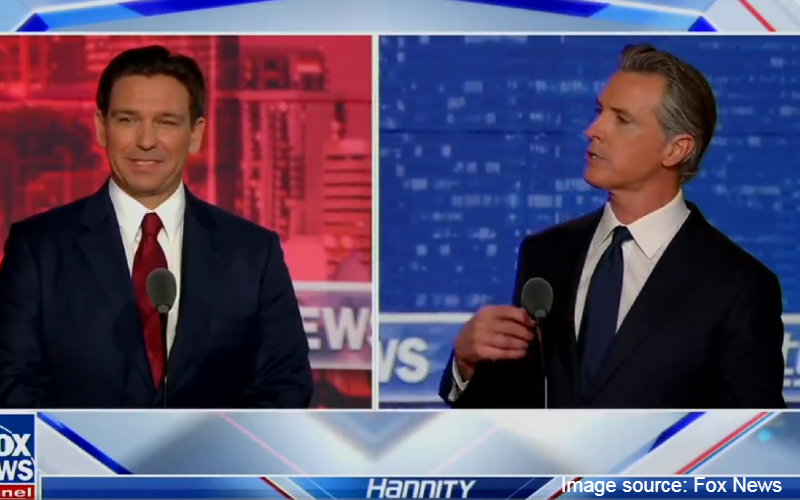Christian Adams, the president of the Public Interest Legal Foundation (PILF), believes chances are good for a fair election process in November. Republicans, says the conservative attorney, are taking a "fool me once" approach to the 2024 elections and will be on guard for fraud or other interference attempts.
"First of all, there are lots of folks out there – like the Public Interest Legal Foundation and other groups – that are very ready to intervene in these cases, to fight back, to not make the same mistakes conservatives made in these cases four years ago and get caught flat-footed, which is what happened," Adams said on Washington Watch Thursday.
Improvements to the election process have been made in many states, and news laws are in place, he told show host Jody Hice. "I'm guardedly optimistic that it won't happen again," he added.
A 2021 report spearheaded by Republican National Committee chairwoman Ronna McDaniel cited abuses in Democrat-led states that it said worked to "exploit the pandemic" by making changes to traditional election practices, many of them late in the game and with little care to follow proper methods for changing existing laws.
"What we saw this past election – states undoing important safeguards, bypassing the proper legislative processes, and changing election laws in the eleventh hour – was deeply troubling and brought chaos and uncertainty to our sacred democratic processes," McDaniel said in the February following the election.
Conflicting reports after 2020 elections
The RNC report, which came at the close of a seven-month investigation, pointed to New Jersey and Nevada as examples of poorly managed elections where ballots were automatically mailed to voters who did not request them, and poll watchers were required to stand socially distanced from voters.

Adams said election officials in those states used COVID-19 mandates as a reason to break down existing safeguards.
"… All of the guardrails we had in place for our elections – like witness signature verification on absentee ballots; [like] voting in person, which is safer than voting by mail – all of these safeguards we had were broken down because of COVID," he explained. "I was in court listening to judges [who were] signing orders, signing off on dissolving the laws."
The RNC report conflicted with the report by the U.S. Election Assistance Commission, a bipartisan commission established by the Help America Vote Act of 2002. That report called the 2020 election a remarkable success with increased voter turnout and no real increase in ballot rejections.
Now, not later, is the time to move
The U.S. Constitution gives states broad authority in how their elections are run, but the Supreme Court in June placed limits on that authority. So, Adams' legal group isn't waiting for Election Day 2024 to simply stand guard for the process. His group this summer filed a lawsuit in North Dakota challenging that state's extended window to receive absentee ballots.
"There are other states that count ballots for weeks," he explained, "and in some places, like North Dakota … our organization is suing to stop the collection of ballots for two weeks [after Election Day]. In previous North Dakota elections, the ballots came in even without postmarks."
PILF is basing its case on the federal law that says elections must be held the Tuesday after the first Monday in November in every even-numbered year.
North Dakota wasn't the only state under PILF's microscope – they also looked at who did it right. "In Florida, we knew who won on election night because they have a variety of things in place. We did a whole report on why Florida went from worst to first. They were worst in 2000; now they were first in 2020," Adams noted.
Trying to overcome corrosion of confidence
The conservative attorney is hoping the court case will provide clarity on what is allowed in the election process moving ahead.
"North Dakota has one of the most extreme multi-week periods to collect ballots after an election, so we brought a federal lawsuit in North Dakota," he said. "Other groups have tried in other places, like Illinois. We're trying to get some clarity. Endless elections are corrosive to confidence in the system. It shouldn't mean Election Day and then two extra periods of overtime."
Adams also urged those concerned about election integrity to step up to the plate. Change, he noted, doesn't have to be left up to watchdog groups like PILF and the courts.
"The best thing anybody can do is become a poll official," he suggested. "Counties everywhere around the country need people to serve as poll officials. It's not fun, it's all day; it's kind of like sitting in a deer stand from sunrise to sunset. Sometimes it's not easy.
"But if you are an election official, you can volunteer to do it – sometimes you get paid – you will learn about the process, and you will help safeguard the process."







